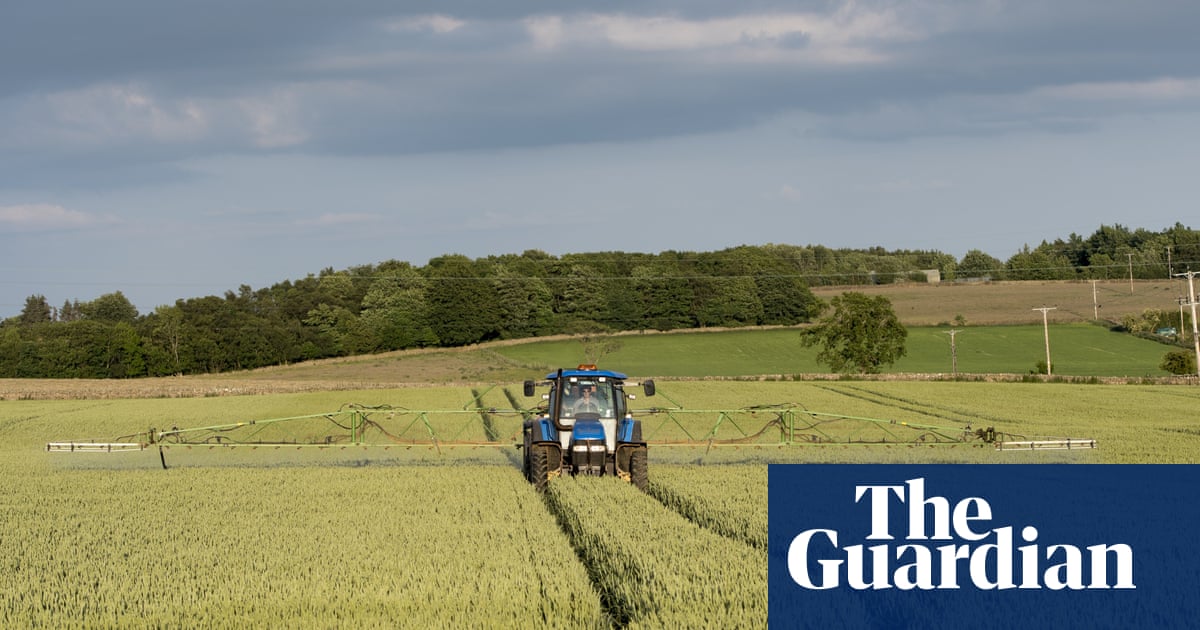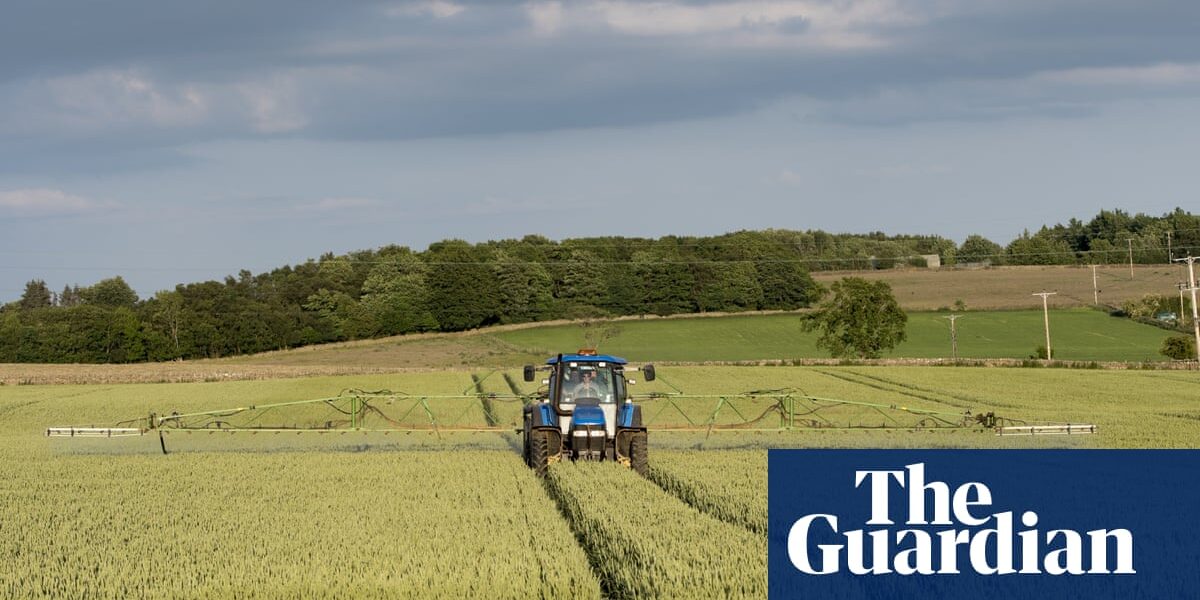English farmers have accused ministers of not fulfilling their promise to allocate funds for post-Brexit spending.

The government has faced allegations of failing to fulfill its commitment to English farmers, as the farming budget is reportedly short by hundreds of millions of pounds.
The government had made a commitment to allocate £2.4bn annually towards agriculture by the end of their term. This funding was intended to replace the EU’s common agricultural policy, which provided financial support to farmers based on the size of their land. In lieu of this, the government assured that farmers would be rewarded for promoting the preservation of natural resources and would receive substantial compensation for providing public benefits, ultimately aiding both nature and the sustainability of their farms.
Despite the commitment, the government has yet to allocate the pledged amount of £2.4bn annually. Data from the Department for Environment, Food and Rural Affairs (Defra) reveals a shortfall of £110m for 2021/22 and £117m for 2022/23, resulting in a total of £227m in unspent funds.
Farms are being encouraged to enroll in environmental programs where they are financially compensated for implementing measures like enhancing soil quality and creating ponds. These initiatives will replace the traditional direct payments received as subsidies, which are gradually being discontinued.
Some of the funds are allocated towards initiatives aimed at boosting the success of farms. Rather than receiving the funds directly, farmers have the opportunity to engage in programs that teach them how to enhance their business.
Many farmers have expressed their uncertainty about the whereabouts of the £2.4 billion budget allocated for farming, as their direct payments have been reduced by half since Brexit. This has added to the financial strain on farming businesses, which are already facing increasing costs and inflation. As a result, many fear that they may be forced to close their operations.
The environment schemes, which are guaranteed payments to farmers as opposed to the ad hoc grants or training programmes also included in the budget, have yielded a relatively small spend for farms. The total spend by the government on environment farming schemes was £515m in 2021/22 and £688m in 2022/23.
The Labour party’s shadow environment secretary, Steve Reed, stated that they would release the missing funds for farmers and simplify the process of receiving money from environmental programs. Reed criticized the Conservative party for breaking their promise to support farmers, stating that the money should be in their hands instead of being neglected by the government.
Labour aims to eliminate the bureaucratic hurdles imposed by the Conservative government that have hindered farmers from obtaining financial support for initiatives such as safeguarding nature and wildlife habitats on their property. However, our efforts do not stop there. We will also strive to remove export obstacles for farmers by negotiating a veterinary agreement with the EU, increase the procurement of locally grown products by the public sector, and promote the production of renewable energy within the UK to reduce farmers’ energy expenses. Labour is committed to restoring the future of farmers.
On Thursday, at the Oxford Farming Conference, the government’s pre-election message to the agriculture industry will be delivered by environment secretary Steve Barclay. However, he is not anticipated to present a specific strategy for allocating the missing funds in the budget.
The underspend was deemed unacceptable by Minette Batters, the president of the National Farmers’ Union.
She stated that farmers were assured a smooth shift to the Elms scheme after Brexit. In a year with a general election, it is not acceptable that the schemes are still being developed. There are significant concerns over whether the sustainable farming incentive payments can be fulfilled, despite requests from the NFU and other groups to pilot the delivery. With a 50% reduction in basic payment scheme payments, farmers in England have no knowledge of where that money is being allocated and what it is being used for.
A representative from Defra stated that the allegations made are completely false. As previously stated, we are on schedule to fulfill our promise of maintaining the annual farming budget for England at £2.4bn per year. In fact, we have planned for a higher expenditure in the last year of this parliament to ensure we meet this commitment. We have also allocated a substantial amount of funds towards the farming industry, including through Elms, and have observed a high demand for our sustainable farming incentive program. In addition, we have provided grants and funds to assist farmers in modernizing and innovating, such as through the Farming Innovation Programme.
Source: theguardian.com


